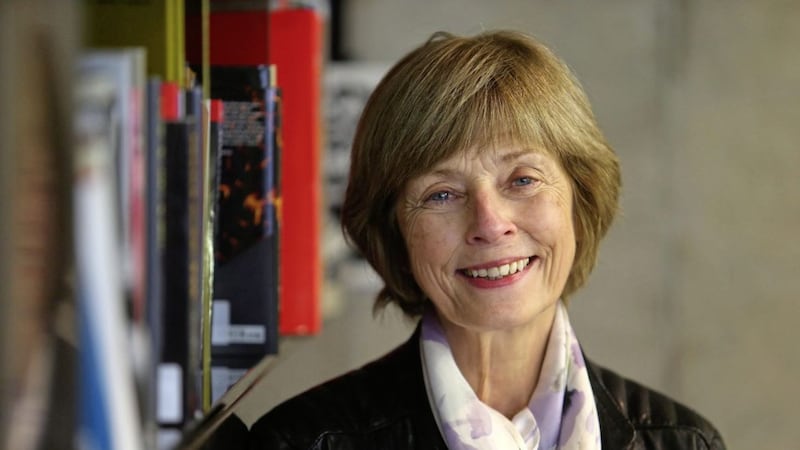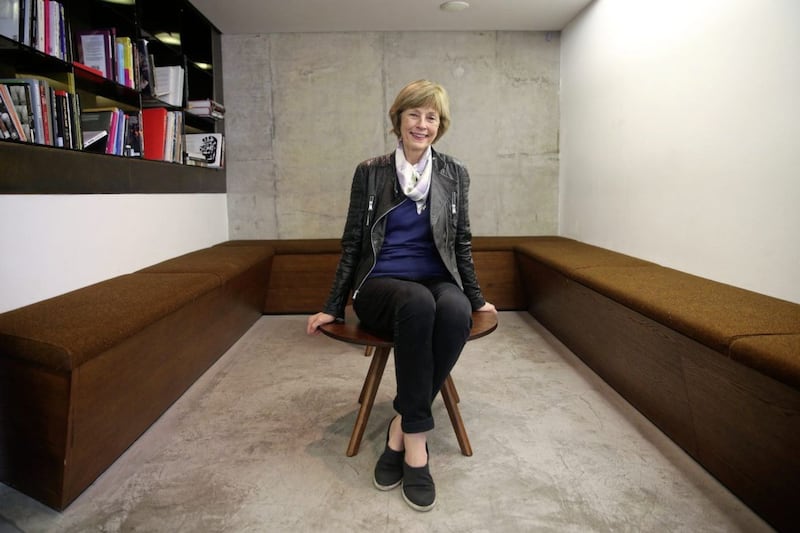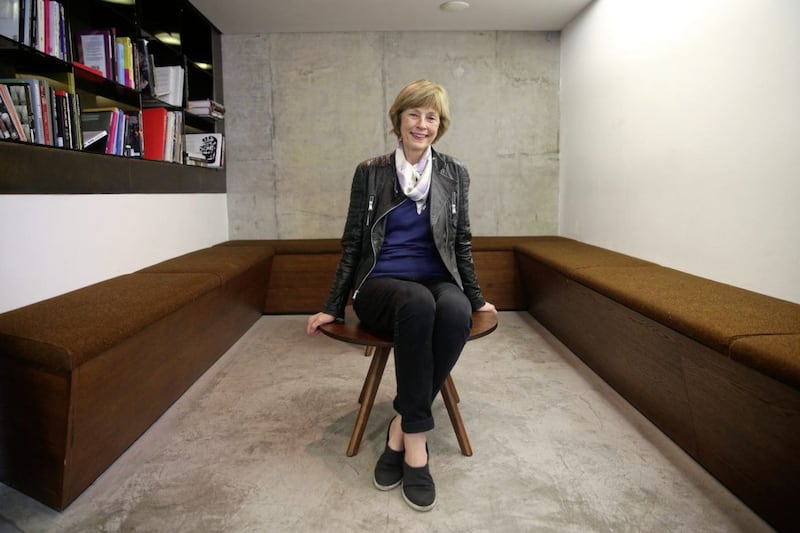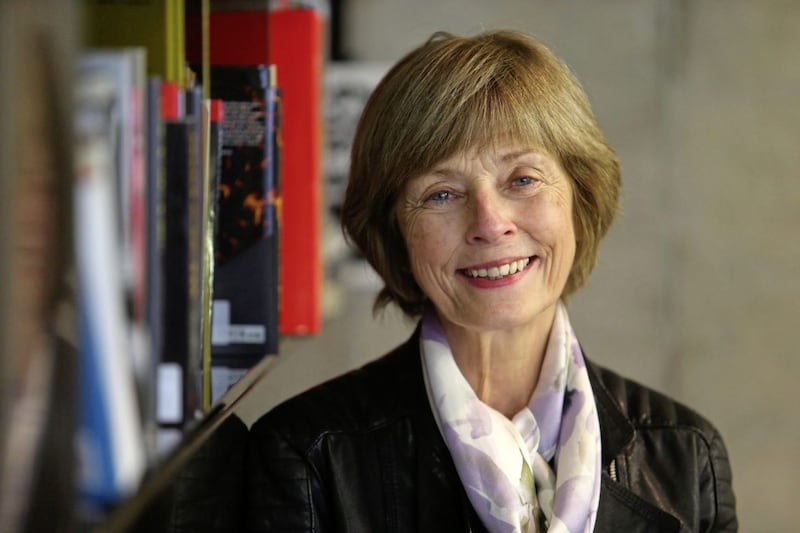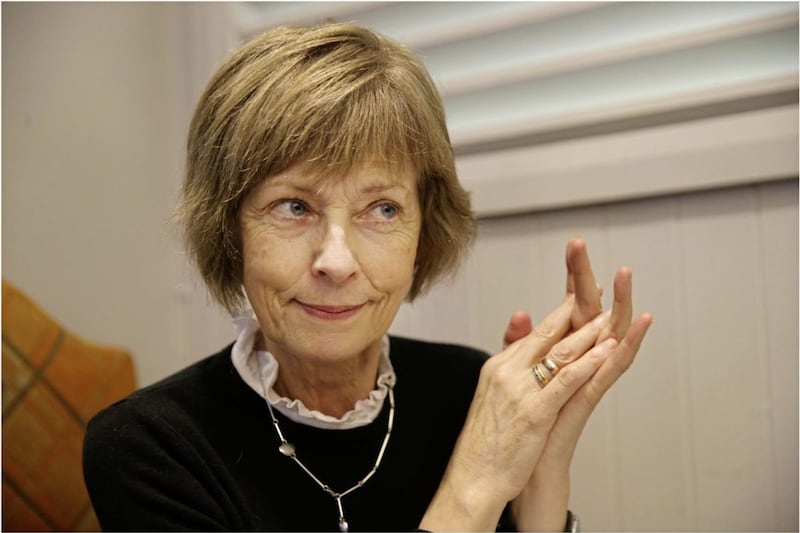WRITING is a step into the unknown, a restless adventure for award-winning Belfast novelist and academic Sophia Hillan, who is never quite certain where her characters will end up.
"A story is always a journey with an unclear destination and I can rewrite it up to 20 times before I'm happy," says the author who spent 40 years compiling her latest publication which launched in Belfast last week – a collection of short stories entitled The Cocktail Hour.
She also likes to leave the reader a little unsure themselves when they reach the final page, having something of a penchant for the ambiguous ending...
"People ask me what happens to the couple in The Cocktail Hour [the final story in a collection of 10] and my response is simply, 'I don't know', muses the English graduate and mother-of-two who grew up on the Falls Road and began writing prize-winning short stories while in her 20s.
"My ending could be different from yours. I like a little mystery and for people to walk away from a story thinking of various possibilities. In terms of this collection as a whole, I would love readers to feel like they've been somewhere else for a few hours; somewhere that has been a little though-provoking; a place of meditation."
The Cocktail Hour contribution, first published by Dublin editor, David Marcus, in his Faber Book of Best New Irish Short Stories (2005) – also shortlisted for the Royal Society of Literature's inaugural VS Pritchett Award in 1999 – is a dream-like look into the life a couple alone "in the darkness of a New York night".
Their past and future is unknown, but in a curious portent, given the Twin Towers terror attack in 2001, Hillan places the unnamed man and woman in the financial district of New York, "in eerie, nothing silence"; a place they had initially believed to be safe.
"I was writing about a different America at the time," she says. "I had no idea at the time that I was describing another America; a country that was to change forever."
With regard to the VS Pritchett Award for the story, it was a thrill to finish runner-up: "The winner was the great British playwright John Arden, so I didn't mind at all!" quips Hillan, a former associate director of the Institute of Irish Studies at Queen's University.
And, with short stories currently enjoying a resurgence in popularity among the great reading public, the author, who received critical acclaim for previous novels The Friday Tree (2014) and The Way We Danced (2016), felt it timely to bring her tales together in one book.
"Life is very fast now, so I'm not surprised that the short story is being appreciated by readers again," she says. "I wouldn't describe the short story as a fast 'fix' as such, but it is a way of slowing down the pace and enjoying a story in manageable pieces at one sitting.
"All of the stories in this collection have been published bar three, and I worked on them while doing other things, including teaching and researching and writing academic books. I have always enjoyed working in both fiction and history and sometimes the two can collide, the hybrid taking on a life of its own."
Sometimes, the historical account needs no imaginative embellishment at all, as in the case of Hillan's groundbreaking 2011 non-fiction book, May, Lou & Cass: Jane Austen's Nieces in Ireland, which chronicles the fascinating real-life stories of the great writer's relatives.
A great admirer of Austen's work, she was excited to uncover the previously unknown Donegal connection during research and is currently working on a second intriguing publication on the same subject.
Closer to home, though, the late Seamus Heaney has been a "huge inspiration". Hillan first met him when she began studying English at Queen's University Belfast in 1968 – he was her tutor and lecturer; later they were teaching colleagues at Carysfort College of Education in Dublin and, with their families, became lifelong friends.
"Seamus was an exacting and considerate teacher," the writer recalls. "But you had to work hard to gain an A from him – if you got one, you knew you had earned it. When we taught together in Dublin, I was always very aware of his very high standards, but also the way he brought out the very best in his students."
Writer and teacher Michael McLaverty, one of Heaney's early mentors, gave her access to his letters, which she used for her PhD and which, in turn, opened the door to a long-standing academic career at Queen's.
Although officially retired since 2003, the writer, who is proud to call herself a feminist – "why would you not?" – has no intentions of slowing down and continues to observe human behaviour close-up in the present, while still keeping a watchful eye on the past.
"You can't help observing human nature and, as a writer, you can't help noticing things and storing them away," she says. "The great American writer, Norah Ephron, was once told by her screenwriter mother that "everything is 'copy'"; everything you see and hear can be used for a story at some point in the future."
:: The Cocktail Hour is published by Arlen House and is available from No Alibis, Books, Paper, Scissors bookshop and Waterstones, Belfast.
